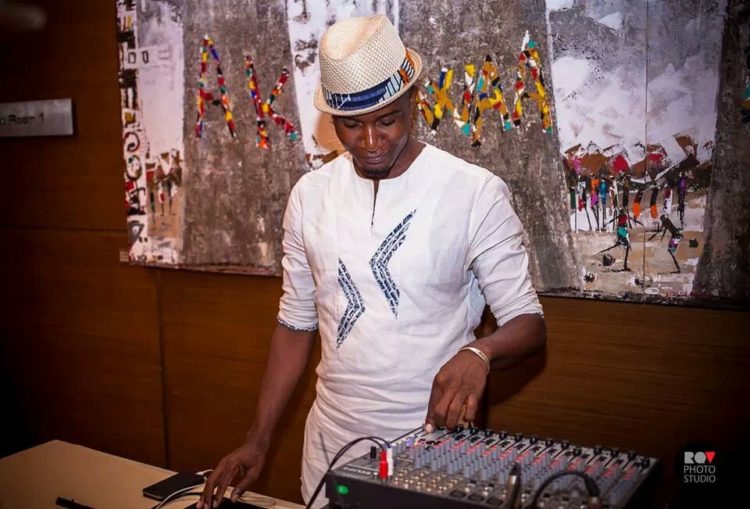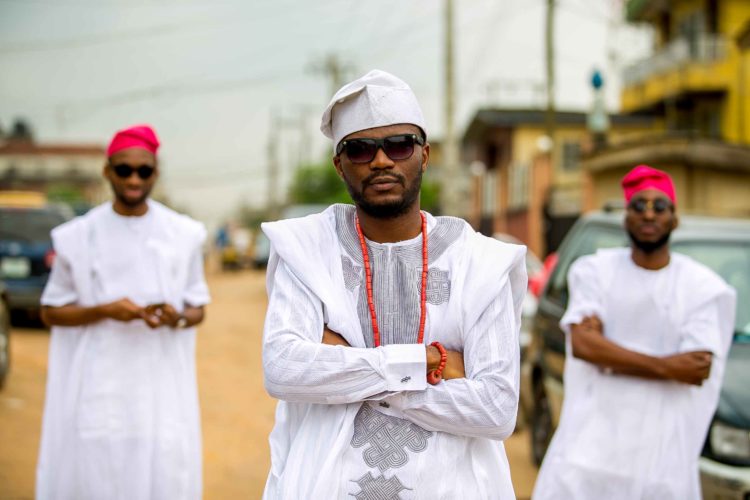Fuckboy: A savage lothario, with an insatiable desire to ravish the body and emotional sensibilities of women, while exhibiting a keen aptitude for abandonment upon the threat of an emotional connection.
– La ChichiMambo
Like most feminists, I believe penny wise, pound foolish is the woman whose idea of raising a boy into a man is to rid him of his emotions, deny him basic survival skills (cooking for one), kill his sensibilities, and encourage his libertine affinities, all in the name of instilling a sense of manliness. Those are just a few characteristics of the patriarchal notion of manliness that breeds men with a ‘King’/superiority complex. It’s something which makes them a burden to their future partners.
Raising feminist African men is important. Traditional African men who seek true partnership in relationships are rare; they tend to pin down women, and box them up as property to be used at their disposal. So it is always refreshing to find a few men who believe the antidote for the machismo, chauvinist African man is re-educating him to be humanist, at least, and feminist at best.
If you expect monogamy or equality in a marriage with an African man, then you better prepare to die a spinster.
Professor, disk jockey and writer, Kobby Graham, whose creative culture articles I am in love with, is one of these endangered species of feminist African men. His definition of feminism? ‘Believing and acting on the fact that women are full human beings.’
I decided to reach out to him when the thought of this article came to mind. He says his formative years shaped him into a man who values the feminist agenda. Charity begins at home and if you were born to an intelligent power woman who led by example, like his mother, you were bound to value the boundless capabilities and ambidexterity of women in all spheres of life.
While we chatted about the role of African women in creating a breed of men our future daughters can marry, he told me this brilliant story: ‘My mother, the late Efua Dorkenoo, and I once argued about this. She initially felt that men are better placed to raise boys and so it is their responsibility to raise feminist sons. My (somewhat cheeky) response was that if African women were going to wait for non-feminist African men to miraculously raise feminist sons, they might have to wait a very, very long time.
‘Mom was many things. Loving. Intelligent. Warm. Empathetic. Protective. Imperfect. Human. Somehow, she (a mother) raised my brother and I to not be intimidated by feminist women. Probably by example. By being herself, she showed us it was okay for a woman to be herself. And now, we will pass that on to our children – male or female – like the African fathers she hoped would do exactly that.’
Most humans, male or female, are products of their environment. I thought about the African men in my life, and those in the lives of the women I know. I thought about how quickly love turned sour, how their words, actions, and inactions became our burden even years after we found the strength to leave. The machismo I was attracted to might have just been a bad case of a ‘King-complex’, a fragile ego, nurtured in their formative years. I wondered what kind of people raised these men, what patriarchal ideologies were instilled in them by their parents?
It’s not so much about sexual infidelity; it is more the general disregard for the opinions and individuality of the women in their lives.
‘If you expect monogamy or equality in a marriage with an African man, then you better prepare to die a spinster,’ an ex-lover once said to me. ‘You cannot command the remote control in the midst of men.’ I’m not idealistic about love and marriage, but this statement among other ideological atrocities earned him the well-deserved title of ‘fuckboy’.
It’s not so much about sexual infidelity; it is more the general disregard for the opinions and individuality of the women in their lives. The overarching problem is the general belief that women are commodities, valuable if and only if they are willing to please men at their beck and call. Both humanist and feminist African men understand the danger of that kind of belief. More importantly, they understand the value of the empowered woman as an equal, a powerhouse capable of shaping and revolutionising the world around them.
Of course there are many types of feminist philosophies. And while there are exemplary feminists, there is no such thing as the perfect male feminist or the ultimate African feminist. African women feminist movements like the Igbo Aba Women’s Riots, or activists like Funmilayo Ransome-Kuti, Margaret Ekpo etc. each bear different idiosyncrasies, their unique brand of feminism.
While Kobby and I discussed traditional African feminists and how they raised their children to respect womb-manhood, long before the English term for the word came into play, Kobby said ‘I’m by no means better than any man. But I do think respect and recognition of EVERYONE’S humanity is compatible both with being African and being a man. And so far, I find a lived value in striving towards such daily, lived equality. It doesn’t reduce my manliness or my humanity. In fact, I feel it enhances it. It works, it can work and I honestly think it’s the only way forward. My mother found her space in the struggle. And I think that spreading this idea – by attempted, lived example – is the contribution I can make.’
Thomas Sankara once said something about women holding up half the sky.
A man should be educated to be confident and respectful of all people, to not fall for egoistic patriarchal jargon. This should simply be a human quality. I asked Kobby about his thoughts on equal partnership in a relationship and he commenced his response in the words of one of the world’s greatest Marxists and pan-African theorists.
‘Thomas Sankara once said something about women holding up half the sky. Half. It implies partnership. We are a people in flux. Between worlds. Things changed once our girls started receiving a formal education; the girls who grew into our mothers and grandmothers. They were at the frontline of that change. They had greater options but often ended up being punished for them.
‘It’s tempting to suppress change but the writing’s on the wall, really: manhood is – very slowly – being forced to change. And must. People often presume this is bad but it isn’t. Our boys need a sense of manhood that is innate and doesn’t come from external validation. A heightened sense of their own humanity, if you will. When we have that, we won’t be threatened by strong women. And the entire sky will be better for it.’
No man is an island, so I think of Sankara’s words and Kobby’s idea of change. African women who think like me will stay single if we do not take the burden of the King-complex (which breeds a fuckboy mentality) off the African man’s shoulders… and our own. The only way to do this is by force employing the most formidable agent of change, education.
We (women, men, schools, religious houses, parents) must teach our young boys and broken men to unlearn notions of manliness grounded in ego, machismo and the ploys of patriarchy. We can dream of a future for ourselves, and our daughters, when we are able to master and instill humanist values to those who are lacking. We must teach respect for individuality, and the dignity of all people. A man who values the dignity of all people, is capable of valuing a woman.
When men take off this burden, they will make great partners and spectacular husbands.


